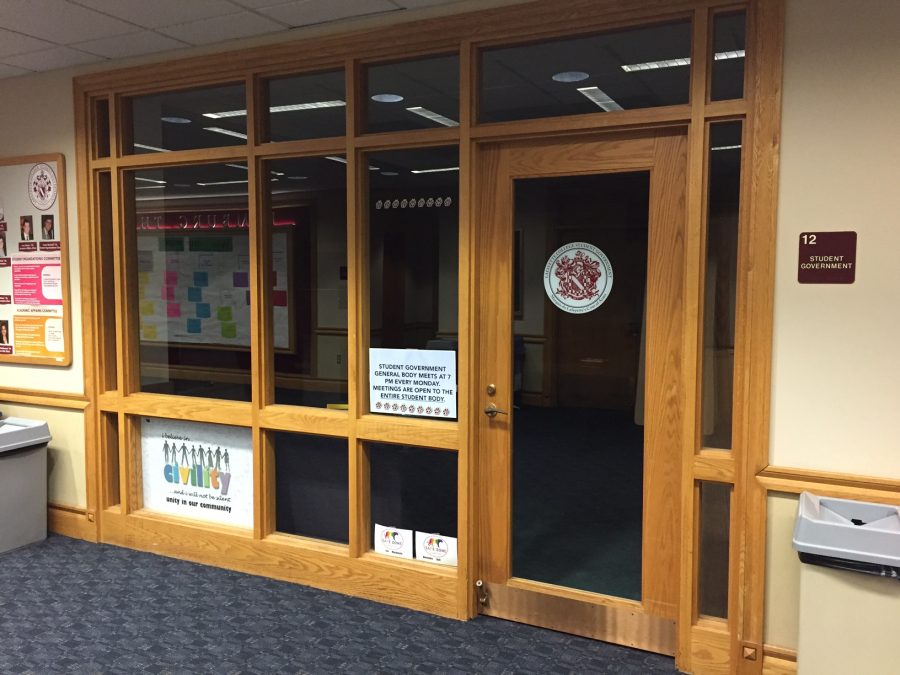
The student government office in Farinon. (Photo by Ben Fuller '21)
Roughly four weeks after its formation, the Ad Hoc Committee on Ensuring Inclusive Dialogue released their final report to the entire campus community. In it, the committee calls for the college to remedy the allegedly “intellectually homogeneous” discourse on campus, dominated by leftist ideology.
Despite the charges of leaning conservative, committee chair Michael Latorre ’18 said that the committee has no political agenda. He said it wants the college to adopt the University of Chicago principles which call for a “free inquiry” of ideas on campus.
“To quote Lee Jussim, Jonathan Haidt and Chris Martin, since the 1990s, the American academy ‘has gone from leaning left to being almost entirely on the left,’” the report reads.
“The committee has gathered suggestive evidence that Lafayette College is implicated in this national trend,” it continues.
Student government president Bilal Akbar ’18 wrote in an email that the committee is “apolitical in nature,” but student government representative Pascual Ventura ’19 disagreed.
“I think it’s completely incorrect [to say the committee is apolitical in nature]. I think it’s a lie,” Ventura said. “The recommendations they were making come from a biased perspective.”
Latorre said that the testimonies and answers in a survey conducted by student government stand as evidence that Lafayette falls in line with the claimed national trend of liberal-leaning campuses.
Students who have conservative political views are being marginalized and silenced for not agreeing with the liberal majority, according to the committee.
“It’s one thing to have your views challenged,” Latorre said. “It’s totally another thing to have your views heard or to have your platform removed or be vilified for holding views you have.”
Fayola Fair ’19 came to some of the committee’s meetings with concerns about what the group’s purpose was. She said that she and other concerned students had a different interpretation of the testimonies.
“A lot of the testimony really boils down to having class discussions, having an idea critiqued and then seeing that as being marginalized or being silenced,” she said.
Fair also took issue with some of the content of the testimonies themselves, especially one which likened white power to black power.
“Black power is about empowering black people who have been historically and currently marginalized socially politically economically, and white power which is used to support white nationalism, anti-Semitism, xenophobia and racism,” she said. “I think to compare those two shows a general misunderstanding, and I think it’s also very dangerous.”
Latorre said that although the committee used the testimonies as evidence, it does not endorse the ideas behind them.
Fair said she found this problematic to the committee’s logic.
“If you don’t endorse the ideas in the testimonies, I’m confused about why they’re including them,” Fair said. “I think that if you are unable to endorse the ideas that you are using to support the report, then what does that mean about the ideas that are included in the report?”
Ventura said that he does not think this committee is the proper forum to open up inclusive dialogue, especially since it only portrayed one side of the story.
He also took issue with the way Akbar unilaterally decided to form the committee, which is a power he has as student government president.
“I find it really problematic the fact that this is something that wears the student government logo when we did not vote for it,” he said.